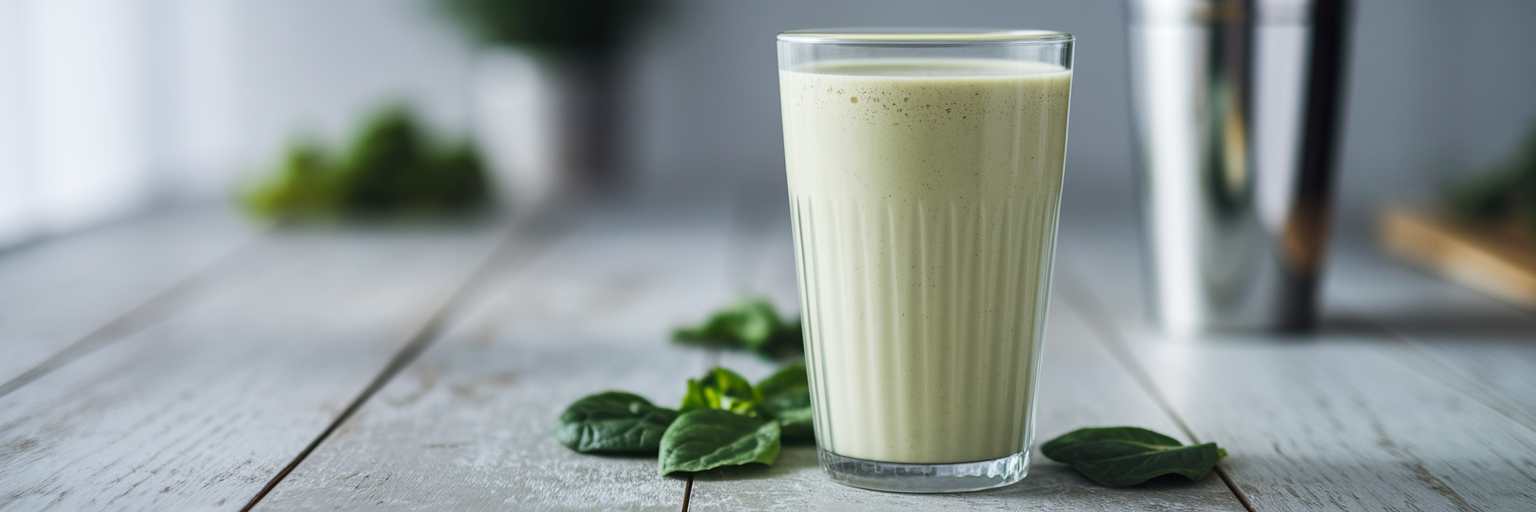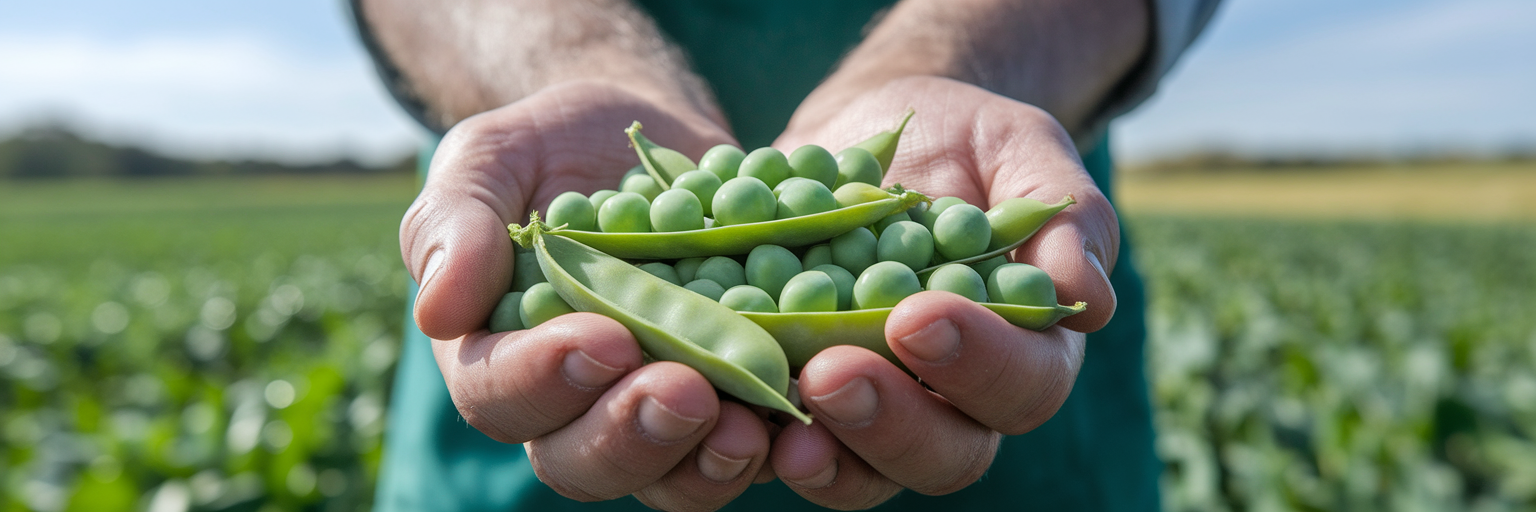Why Your 'Healthy' Protein Shake Might Not Be So Clean
You've committed to a plant-based lifestyle to support your health and fitness goals, and that deserves recognition. You carefully select your foods and push through tough workouts. But what if the vegan protein powder you trust to refuel your body is working against you? The "vegan" label on the front doesn't always tell the whole story. Many popular powders contain fillers, artificial additives, and other ingredients that can cause digestive issues or interfere with your performance.
It’s a frustrating feeling to invest in your health only to discover your supplement contains things you actively try to avoid. This isn't about creating fear. It's about empowerment. Understanding what to avoid in protein powder helps you cut through the confusing marketing claims and choose a product that truly supports your body. This guide will show you exactly what to look for on the label so you can make confident, informed decisions.
1. Artificial Sweeteners and Flavor Enhancers
One of the most common additions to protein powders is a host of artificial sweeteners. Ingredients like sucralose, aspartame, and acesulfame potassium are used to deliver intense sweetness without adding calories, a feature that appeals to anyone managing their weight. However, this benefit can come at a cost. For many, these artificial compounds trigger digestive distress, leading to the bloating and gas that can derail your post-workout recovery.
Beyond immediate discomfort, some research suggests these sweeteners can disrupt the delicate balance of your gut microbiome. A healthy gut is fundamental for absorbing the very nutrients you're trying to get from your protein shake. Instead of settling for artificially sweetened formulas, look for powders that use natural alternatives like monk fruit or stevia. Better yet, an unsweetened powder gives you complete control. You can find some great ideas for flavoring it yourself in our post on 3 easy vegan protein recipes you'll actually crave.
2. Gums, Thickeners, and Fillers

Have you ever wondered how some protein powders achieve a creamy, smooth texture while others are chalky and thin? Often, the secret is not the quality of the protein but the addition of gums and thickeners. Ingredients like xanthan gum and guar gum are added to improve mouthfeel and mixability. While generally considered safe, these gums can cause bloating and digestive upset in sensitive individuals, especially when consumed daily.
Another common filler is maltodextrin, a highly processed carbohydrate derived from corn, rice, or potato starch. It’s often used to add bulk and improve texture, but it has a high glycemic index. This means it can cause a rapid spike in blood sugar, followed by a crash, which is the opposite of the stable energy you need for sustained performance and effective weight management. A premium powder shouldn't need these shortcuts. The best plant based protein without fillers relies on high-quality, finely milled ingredients to create a naturally smooth texture. Seeking out a shorter ingredient list is often the first step toward finding a cleaner product.
3. Hidden Soy and Gluten
For many people, avoiding specific allergens is a non-negotiable part of their diet. Yet, soy and gluten can sneak into protein powders where you least expect them. While soy is a complete plant protein, it is frequently used as a low-cost filler in less reputable blends. For individuals with a soy sensitivity or allergy, this can lead to unwanted inflammatory responses or digestive problems. It’s also one of the most common genetically modified crops, a concern for those seeking clean, non-GMO products.
Gluten can also be an issue, not because it’s added intentionally, but due to cross-contamination. If a powder is processed in a facility that also handles wheat, barley, or rye, trace amounts can end up in the final product. To avoid any guesswork, look for powders that are explicitly labeled as "soy-free" and, more importantly, "certified gluten-free." These certifications provide assurance that the product has been tested and meets strict standards for purity.
4. Heavy Metals from Contaminated Soil

This is a topic that requires serious attention. Plants, including those used to make protein powders like rice and peas, absorb nutrients from the soil and water they grow in. Unfortunately, they can also absorb harmful contaminants. Heavy metals like lead, arsenic, cadmium, and mercury can be present in polluted soil and find their way into the final product. These toxins can accumulate in the body over time, posing long-term health risks and potentially affecting organ function.
As Harvard Health notes, some protein powders may contain these toxic chemicals, making independent verification essential. A brand’s commitment to clean sourcing is paramount. The only way to be certain a product is safe is through rigorous, independent testing. Look for brands that are transparent about their quality control and openly share their testing practices for heavy metals in protein supplements. You can find more information on our commitment to purity on our FAQs page, where we detail our approach to ensuring product safety from farm to shaker cup.
5. Vague 'Proprietary Blends'
When you see the term "proprietary blend" on an ingredient label, it should be a major red flag. This is a catch-all term for a custom mix of ingredients where the manufacturer is not required to disclose the exact amount of each component. While it sounds exclusive, it often serves to hide the true composition of the product. This practice allows companies to fill their powders with cheaper, less effective proteins like rice concentrate while adding just a tiny amount of a premium ingredient like pea or hemp protein to feature it on the packaging.
This lack of transparency makes it impossible to know what you're actually paying for. Are you getting 25 grams of high-quality pea protein or a mix that's mostly inexpensive filler? You deserve to know exactly what vegan protein powder ingredients you are putting into your body. Always choose products with fully transparent labels that list the precise amount of each protein source, ensuring you get the value and quality you expect.
How to Read Labels and Choose a Truly Clean Powder

Now that you know what to avoid, you can approach the supplement aisle with confidence. Reading a label effectively is a skill, and it starts with looking past the flashy marketing on the front of the tub. The real story is always in the ingredient list, particularly under "Other Ingredients." Unregulated terms like "natural" can be misleading, so instead, look for meaningful, third-party certifications like "USDA Organic" or "Non-GMO Project Verified." These seals confirm that a product has met stringent external standards.
To find a clean label protein powder, prioritize a short, understandable ingredient list. If you see a long list of chemicals, gums, and fillers, it’s a sign that the product is highly processed. Most importantly, look for a statement about third-party testing for purity and contaminants. This demonstrates a brand's commitment to quality and safety. To simplify your next purchase, use this checklist as a guide.
| Ingredient/Feature | 🔴 Red Flag (Avoid) | 🟢 Green Flag (Look For) |
|---|---|---|
| Sweeteners | Sucralose, Aspartame, Acesulfame K | Monk Fruit, Stevia, Unsweetened |
| Texture & Fillers | Xanthan Gum, Guar Gum, Maltodextrin | Finely Milled Protein, Short Ingredient List |
| Allergens | Soy Protein Isolate, 'Contains Wheat' | 'Certified Gluten-Free', 'Soy-Free' |
| Transparency | 'Proprietary Blend' | Full Disclosure of Protein Amounts |
| Safety | No Mention of Testing | Third-Party Tested for Heavy Metals |
This table provides a quick reference for evaluating protein powders. Green flags indicate higher quality and transparency, while red flags may suggest the presence of undesirable additives or a lack of quality control.
Once you find a brand that meets these criteria, you can start exploring its offerings, like our popular Chocolate Vegan Protein, knowing it's built on a foundation of quality.
Fueling Your Body with Confidence
Choosing the right vegan protein powder shouldn't feel like a compromise. By watching for the five key things we've discussed—artificial sweeteners, unnecessary fillers, hidden allergens, heavy metals, and vague proprietary blends—you can take control of your nutrition. Reading labels is not a chore. It is a powerful act of self-respect that ensures your investment in your health pays off. You work hard for your fitness goals, and your supplements should work just as hard for you.
With this knowledge, you are equipped to select a clean, effective protein that fuels your body, aids your recovery, and aligns with your values. You can move forward with the confidence that every scoop is helping you, not holding you back. Ready to explore options you can trust? You can browse our full range of clean supplements in our shop.



